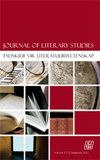达尔富尔种族灭绝背景下建设和平与局部人类安全中的性别主流化:以非洲为中心的修辞分析
IF 0.1
4区 文学
0 LITERARY THEORY & CRITICISM
引用次数: 1
摘要
关于苏丹西部达尔富尔危机的大量学术研究始于2003年2月3.1,这些学术研究包括Apiah-Mensah(2005、2006)、Deng(2007)、Howell(1974)、Mohamed(2007)、Rankhumise(2006)等学者的各种学术著作。在这些学者和解决冲突的实践者所确定的其他问题中,有必要在人类安全和发展之间建立联系,作为设想理解人类和平与安全的关键。达尔富尔冲突及其对人类安全和发展的影响也引起了包括非洲联盟和联合国在内的地区和国际组织的关注。正是在此基础上,本文试图采用非洲中心视角(也被解读为非洲中心)来分析妇女在达尔富尔建设和平进程中的地位,重点关注导致妇女边缘化的潜在因素。在方法上,这篇文章在很大程度上依赖于对话和跨学科的批评话语分析。与官方叙述相反,本文质疑在达尔富尔种族灭绝后的时代,真正的女性声音在和平建设中得到了表达。本文确立的论点是,现有的国内和国际法律文书在将妇女纳入达尔富尔种族灭绝后的政治生活方面给人一种错误的感觉。本文章由计算机程序翻译,如有差异,请以英文原文为准。
Gender Mainstreaming in Peacebuilding and Localised Human Security in the Context of the Darfur Genocide: An Africentric Rhetorical Analysis
Summary A wide body of scholarship has been developed on the Darfur crisis in Western Sudan which started in February 2003.1 Such scholarship includes various academic works by scholars such as Apiah-Mensah (2005, 2006), Deng (2007), Howell (1974), Mohamed (2007), Rankhumise (2006). Among other issues identified by these scholars and conflict resolution practitioners, was the need to establish a nexus between human security and development as a key in conceiving an understanding of human peace and security. The conflict in Darfur and its impact on human security and development also caught the attention of regional and international organisations, including the African Union (AU) and the United Nations (UN). It is on this basis that this article seeks to employ an Africentric perspective (also read as Afrocentricity) for the purpose of analysing the place of women during the Darfur peacebuilding process with a focus on the underlying factors that led to the marginalisation of women. Methodologically, this article is heavily dependent on conversations and interdisciplinary critical discourse analysis in its broadest form. Contrary to the official narrative, this article contests the notion that in the post-genocide era in Darfur authentic women voices have found expression in peace-building. The argument established in this article is that existing domestic and inter-national legal instruments have given a false sense in terms of women inclusion in the post-genocide political life of Darfur.
求助全文
通过发布文献求助,成功后即可免费获取论文全文。
去求助
来源期刊

Journal of Literary Studies
Multiple-
CiteScore
0.50
自引率
0.00%
发文量
0
期刊介绍:
The Journal of Literary Studies publishes and globally disseminates original and cutting-edge research informed by Literary and Cultural Theory. The Journal is an independent quarterly publication owned and published by the South African Literary Society in partnership with Unisa Press and Taylor & Francis. It is housed and produced in the division Theory of Literature at the University of South Africa and is accredited and subsidised by the South African Department of Higher Education and Training. The aim of the journal is to publish articles and full-length review essays informed by Literary Theory in the General Literary Theory subject area and mostly covering Formalism, New Criticism, Semiotics, Structuralism, Marxism, Poststructuralism, Psychoanalysis, Gender studies, New Historicism, Ecocriticism, Animal Studies, Reception Theory, Comparative Literature, Narrative Theory, Drama Theory, Poetry Theory, and Biography and Autobiography.
 求助内容:
求助内容: 应助结果提醒方式:
应助结果提醒方式:


